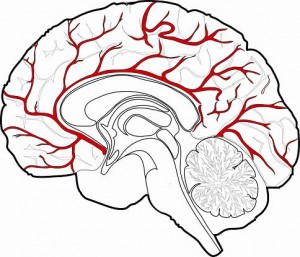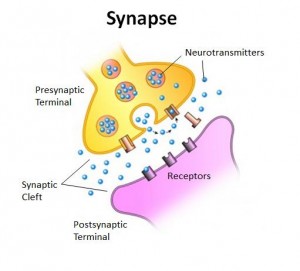How do brains change with experience?
How do brains change? Many studies have shown that our brains, and those of other animals, are remarkably plastic. Plasticity means the ability of the brain to respond to experience by modifying neuronal circuits, or pathways, which in turn affects behavior. The experience causes activity-dependent change. Some behaviors only require one-trial learning, such as food poisoning. If you’ve ever become sick from eating something, you know that feeling of disgust you now have as a response to even seeing that food! Others require multiple learning events.
other animals, are remarkably plastic. Plasticity means the ability of the brain to respond to experience by modifying neuronal circuits, or pathways, which in turn affects behavior. The experience causes activity-dependent change. Some behaviors only require one-trial learning, such as food poisoning. If you’ve ever become sick from eating something, you know that feeling of disgust you now have as a response to even seeing that food! Others require multiple learning events.
Synaptic plasticity refers to changes in the strength (also called the efficacy) of the synaptic connection, or changes in the number of synapses as a result of experience.1 Synaptic plasticity is the neurochemical basis of learning and memory. Certain brain molecules are critical for learning and memory, particularly the excitatory glutamate receptor called N-methyl-d-aspartate, or NMDA. NMDA makes it easier for a neuron to respond to a stimulus the next time it occurs. Longer-term changes can involve additional molecular changes on the post-synaptic side of the connection that aid synaptic efficiency, with an increase in the number of a second type of glutamate receptor, called AMPA for short (its full name is α-amino-3-hydroxy-5-methyl-4-isoxazolepropionic acid!).1
All types of experience-dependent plasticity cause short-term, transient changes seen at the level of the synapse. Depending on the type and duration of the experience, plasticity can subsequently cause additional changes at the synapse or can cause changes in the neuron’s shape (more dendrites, or inputs) or in the number of axonal connections. The end result can be increased density of dendritic branching (increasing the amount of inputs to the neuron), increased size of a brain region, or a change in connections with other regions. These changes, in turn, affect behavior. Both neural and behavioral changes can take place on the time scale of minutes to months.
plasticity cause short-term, transient changes seen at the level of the synapse. Depending on the type and duration of the experience, plasticity can subsequently cause additional changes at the synapse or can cause changes in the neuron’s shape (more dendrites, or inputs) or in the number of axonal connections. The end result can be increased density of dendritic branching (increasing the amount of inputs to the neuron), increased size of a brain region, or a change in connections with other regions. These changes, in turn, affect behavior. Both neural and behavioral changes can take place on the time scale of minutes to months.
| References: |
|

